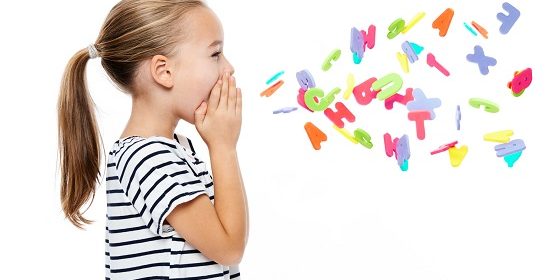If you were to ask members of the public without any firsthand experience of speech therapy nor ever having known someone who requires it, to name a speech development issue, there will be many whose answer will be stuttering. Whilst speech and language developments can come in many forms, it is stuttering which is probably best known to the general public.
For parents who have a child who stutters, it can be a worrisome scenario, but the good news is there are many excellent treatments for the condition at places such as CommuniKids and in the vast majority of cases the speech and languages skills of children who stutter ultimately develop normally as they grow and mature.
Three Types Of Stuttering
As you might surmise from the sub-heading above, stuttering is not a single condition but can arise in three distinct ways as outlined below. Note that not all stuttering is a childhood condition as it can occur in adults in certain circumstances.
Developmental Stuttering: By far the most common form which arises in children. It is most prevalent in children aged between 2 years and 5 years and becomes apparent when the child’s speech and language skills do not develop in step with what they want or need to say.
Neurogenic Stuttering: This can occur as a result of a head injury affecting the brain or a serious medical condition such as a stroke. It may also arise due to spinal injuries which affect signals travelling between the brain and facial muscles in and around the mouth that are used to create speech.
Psychogenic Stuttering: This is the rarest type of stuttering and can occur if the individual has suffered a highly emotional traumatic experience.
Symptoms Of Stuttering
Stuttering can manifest itself in multiple ways as outlined in the symptoms below.
- Prolonging words or sounds when speaking
- Problems starting words, phrases, or sentences
- Repeating sounds, syllables, or words
- Pausing whilst saying words
- Excessive use of sounds during pauses e.g. “erm”, “um”
- Showing increased levels of anxiety when speaking
- Difficulty with simple communication
In addition to the speech-related symptoms, children who suffer from stuttering may also display the following:
- Jerking their head
- Clenching their fists
- Facial tics
- Lips or jaw tremoring
- Blinking rapidly
Causes Of Stuttering
Given that the study of stammering has existed for some time, and that these studies continue, it has to be said that the causes of stuttering that have been identified do not create a very long list. In truth, there are just two or three causes that experts have identified as definitely being a contributory factor which are:
- Genetics: This is highlighted as one of the most easily recognised causes given that if an older family member, and especially the parents of a child have suffered from stuttering, then if the child then suffers from it, genetics has clearly played a role.
- Speech Motor Control: Any issues which exist with a child’s speech motor control can contribute to them sputtering. This would include the timing of their speech and sensory coordination.
- Child Developmental Issues. If a child’s development is compromised across a number of factors such as their physicality or their education being delayed, stuttering can occur as part of the overall problem.
Treatment For Stuttering In Children
Without a doubt, the number one treatment for children who stutter is speech therapy from a speech pathologist. An important point about stuttering treatment is the sooner it begins within the child’s development, the quicker progress can be made. It should be noted that officially there is no medical cure for stuttering, however, with early speech therapy treatment the stuttering can be curtailed to the extent that the stuttering does not continue into adulthood.


